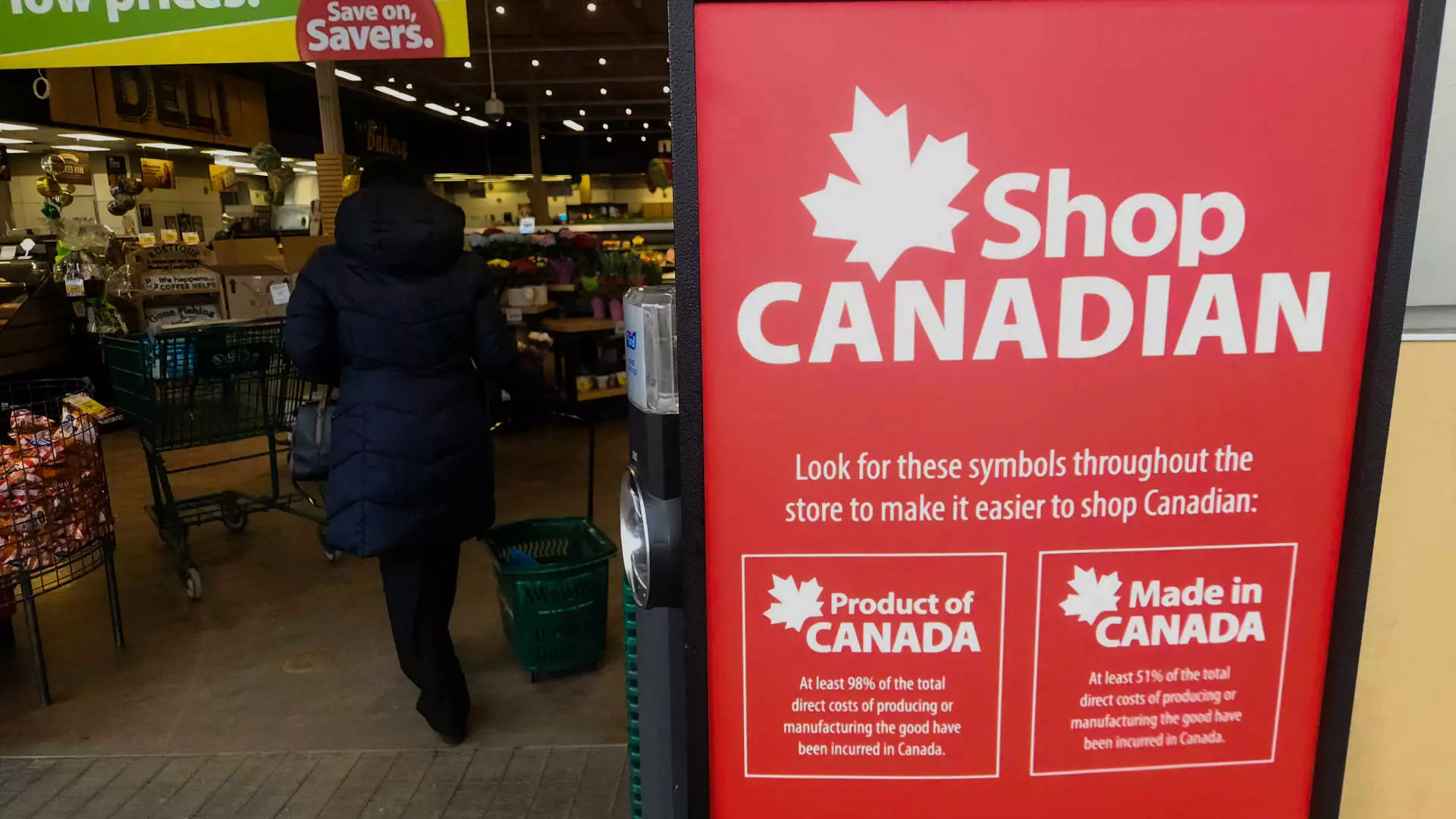In a world often celebrating the merits of free trade, the imposition of tariffs by the U.S. administration under President Trump has not only distorted economic realities but has also cast a long shadow over relationships with critical allies. While the stated goal of these tariffs may have been to rebalance international trade and fortify domestic manufacturing, the repercussions have rippled through small businesses both north and south of the border, raising a complex web of dilemmas. The narrative is clear: these measures have led to tangible feelings of betrayal and mistrust among small business owners who once relied on cross-border trade for their livelihoods.
Fundamentally, tariffs function as an economic weapon, wielded with the intent of coercing compliance from trading partners. In this context, Canada—a nation that has historically enjoyed a deeply interconnected trading relationship with the U.S.—finds itself in an uncertain predicament. With recent data suggesting that trade between the two countries reached an impressive $762.1 billion in 2024, any disruption to this complex economic tapestry cannot be taken lightly. However, the implications of tariffs feel not only economic but intensely personal, particularly for small businesses quietly bearing the brunt of heightened costs.
Trust Wreckage in Commercial Relationships
The reports coming from the Canadian Federation of Independent Business (CFIB) paint a stark picture of disillusionment. With about half of its members engaged in importing or exporting goods to and from the U.S., the emotional toll this crisis has inflicted is evident. Many Canadian business owners have expressed anxiety over negotiating contracts, weighing the beginning of what feels like a long and treacherous path toward potential recovery. As Corinne Pohlmann of CFIB shared, a staggering portion of their surveyed members feel the U.S. has ceased to be a reliable trading partner. This erosion of trust will not be quickly mended; it represents a significant risk to the very fabric of trade relations between the two nations.
While businesses like Balzac’s Coffee Roasters have found creative ways to adapt—rebranding an Americano into a symbol of national pride—many small businesses feel trapped. The emotional distress tied to tariffs runs deeper than mere financial losses. Despite efforts to pivot toward Canadian-made products, the psychological burden of feeling betrayed by a traditionally trusted partner cannot be understated. Trade isn’t just a number; it’s a series of relationships that, once fractured, may never fully recover.
Retail Responses: A Matter of National Pride
The retail sector in Canada has been particularly vocal in its resistance to U.S. tariffs. The Liquor Control Board of Ontario’s decision to suspend purchases of U.S. products signifies an assertive stance rooted not only in economics but in national pride. As U.S.-made products vanish from shelves, it’s clear that the repercussions extend beyond transactions; they represent a profound symbolic snub. By prioritizing Canadian-made goods in storefronts, citizens are opting for a collective identity that embraces and nurtures local culture.
This symbiotic relationship between consumer choice and national pride has clear implications for U.S.-Canadian trade relations moving forward. While businesses adapt to shifting tides, the tariffs reveal themselves as more than just governmental policies; they signify a tectonic shift in identity and values. If U.S. businesses are prepared to bear the brunt of these tariffs, they must also reckon with their long-standing ties to Canadian consumers whose loyalty is now under question.
The Risk of Losing Soft Power
The ramifications of these trade tensions extend far beyond mere economic metrics; they risk eroding the soft power the U.S. has long held on the global stage. Former Secretary of State Antony Blinken has candidly voiced concerns that losing trust in trusted relationships like that with Canada presents one of the most substantial risks to America’s global standing. In a geopolitical landscape that continues to shift with the vibes of rising powers like China, the repercussions of diminished soft power could be catastrophic.
Navigating the dual challenges of trade policies while maintaining strong diplomatic ties is no small task. American businesses must understand that their decisions reverberate beyond just dollars and cents; they are about long-term relationships built over years. If American entrepreneurs fail to recognize that trust is a two-way street, the aftermath of tariffs could dwindle U.S. influence on the global stage while simultaneously damaging relationships with close allies.
Pohlmann’s insights suggest that the relationship setback induced by tariffs is not just a temporary obstacle; it might set the course for an enduring fracturing of ties. Since the world is witnessing an era where global cooperation is more critical than ever, the U.S. must tread carefully, lest the bonds of trade—and trust—become irreparably frayed.


Leave a Reply